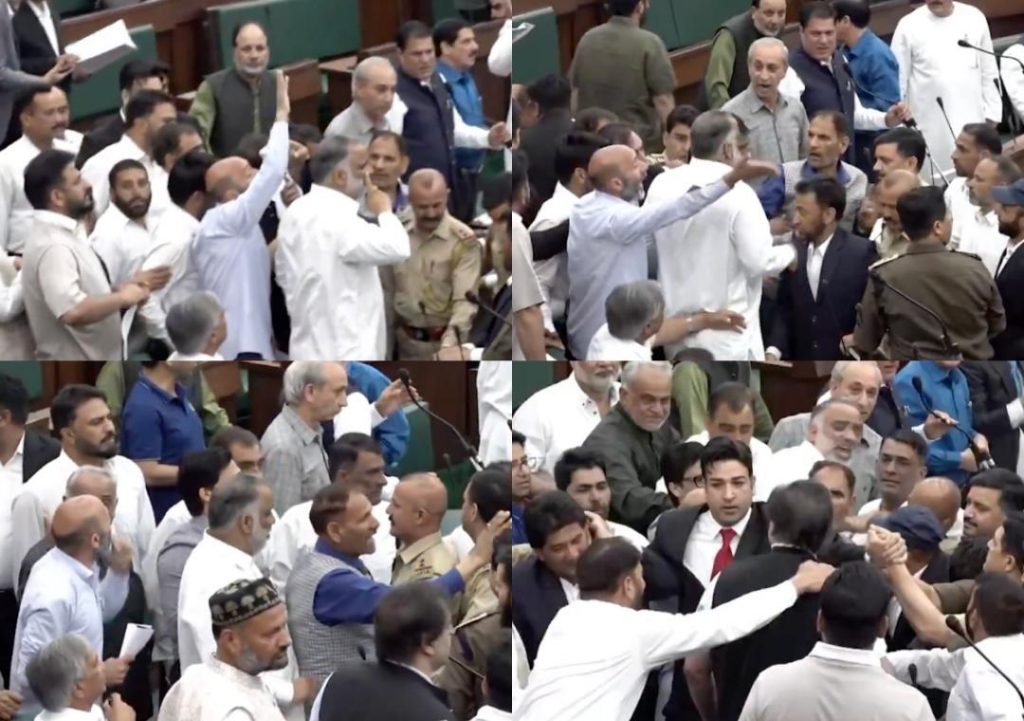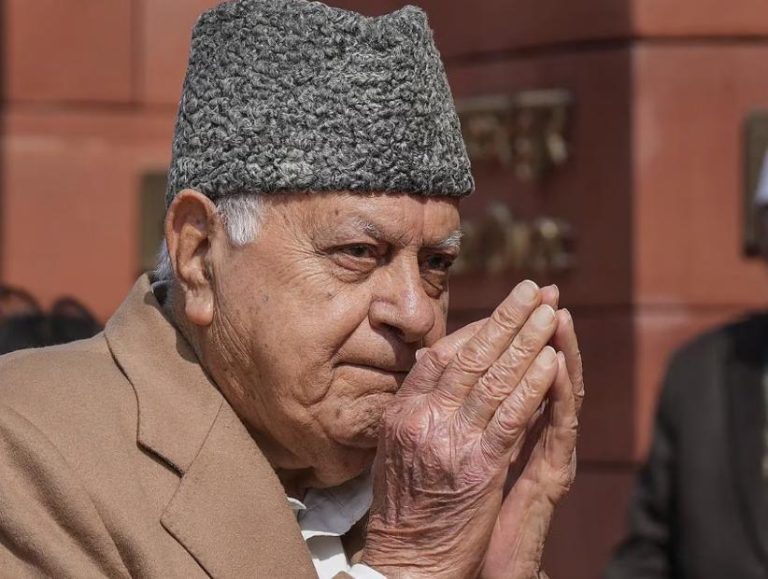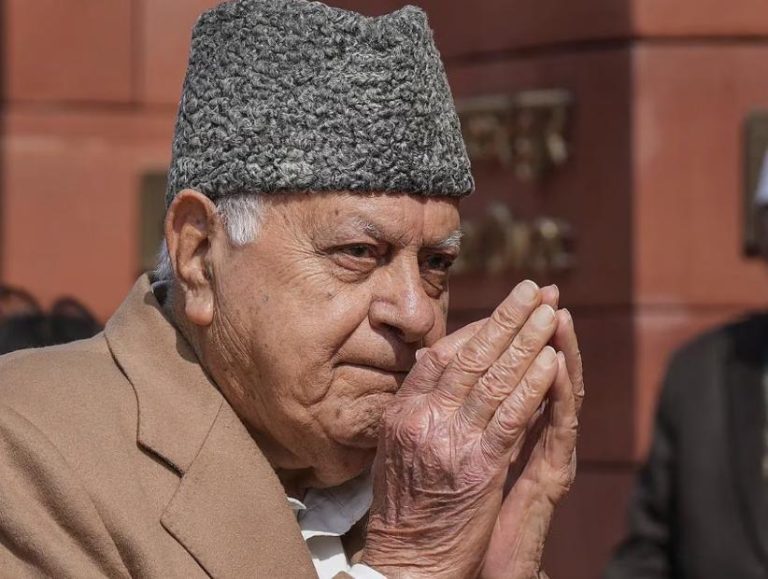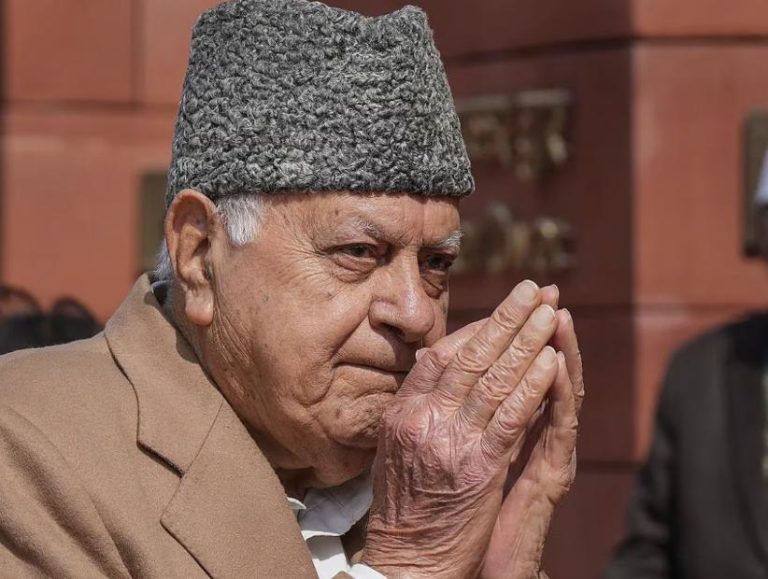
Ruckus inside J&K Assembly continues for second day over Waqf Act
The Jammu and Kashmir Assembly witnessed a ruckus for the second consecutive day as opposition parties demanded a discussion on the Waqf Act, leading to the adjournment of the session for 30 minutes. The Assembly had been adjourned on Monday as well after Speaker Abdul Rahim Rather denied a motion moved by National Conference MLAs to adjourn the Question Hour to discuss the Waqf Act.
The ruckus began on Tuesday morning when National Conference (NC) MLAs, including party president Farooq Abdullah, raised the issue of the Waqf Act, which was passed by the previous government. The MLAs alleged that the Act was against the interests of the Waqf board and the Muslim community, and demanded a discussion on the matter.
The opposition parties have been protesting the Waqf Act, which they claim is an attempt by the government to grab Waqf properties. The Act, which was passed in February, allows the government to take over the management of Waqf properties, including mosques, imambargahs, and other religious places.
The NC MLAs were joined by other opposition parties, including the Peoples Democratic Party (PDP) and the Congress, in demanding a discussion on the Waqf Act. The opposition parties have been claiming that the government is trying to exploit Waqf properties for its own benefit, and that the Act is a violation of the rights of the Muslim community.
The Speaker, Abdul Rahim Rather, denied the motion to adjourn the Question Hour to discuss the Waqf Act, saying that the matter was already being discussed in the Assembly. However, the opposition parties were not satisfied with the response, and continued to protest.
The government, on the other hand, has defended the Waqf Act, saying that it is necessary to ensure the proper management of Waqf properties. The government has also claimed that the Act is in accordance with the Constitution and the Waqf Act of 1995.
The discussion on the Waqf Act has once again highlighted the deep political divide in the state. The opposition parties have been accusing the government of trying to exploit the Waqf properties to fund its own projects, while the government has been claiming that the Act is necessary to ensure the proper management of Waqf properties.
The Waqf Act has been a contentious issue in the state for some time now. In 2020, the government had announced that it would take over the management of Waqf properties, which led to widespread protests and agitation by the Muslim community.
The matter has also been taken to the court, with several petitions filed against the Act. The Jammu and Kashmir High Court had stayed the implementation of the Act in 2020, but the government had challenged the stay in the Supreme Court.
The Supreme Court had earlier this year upheld the Waqf Act, saying that it was constitutionally valid. However, the opposition parties have been claiming that the Act is against the interests of the Muslim community, and that the government is trying to exploit Waqf properties for its own benefit.
The continued protests and agitation over the Waqf Act have once again highlighted the deep political divide in the state. The opposition parties have been accusing the government of trying to exploit Waqf properties to fund its own projects, while the government has been claiming that the Act is necessary to ensure the proper management of Waqf properties.
The Waqf Act has also been a major issue in the state’s politics. The opposition parties have been accusing the government of trying to exploit Waqf properties to fund its own projects, while the government has been claiming that the Act is necessary to ensure the proper management of Waqf properties.
The political divide over the Waqf Act has also been reflected in the state’s politics. The opposition parties have been accusing the government of trying to exploit Waqf properties to fund its own projects, while the government has been claiming that the Act is necessary to ensure the proper management of Waqf properties.
The Waqf Act has also been a major issue in the state’s politics. The opposition parties have been accusing the government of trying to exploit Waqf properties to fund its own projects, while the government has been claiming that the Act is necessary to ensure the proper management of Waqf properties.
In conclusion, the ruckus inside the Jammu and Kashmir Assembly continues for the second day over the Waqf Act, with opposition parties demanding a discussion on the matter. The opposition parties have been accusing the government of trying to exploit Waqf properties to fund its own projects, while the government has been claiming that the Act is necessary to ensure the proper management of Waqf properties.
As the debate continues, it remains to be seen how the situation will unfold. Will the opposition parties be able to get their demands met, or will the government be able to push through its agenda? Only time will tell.




